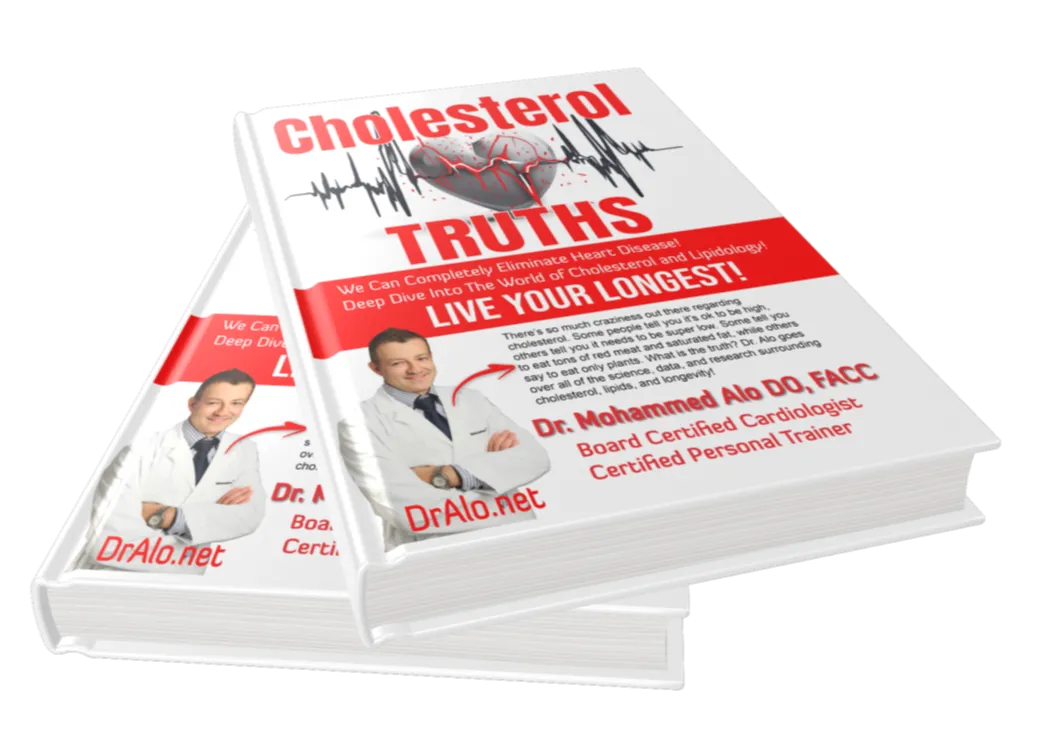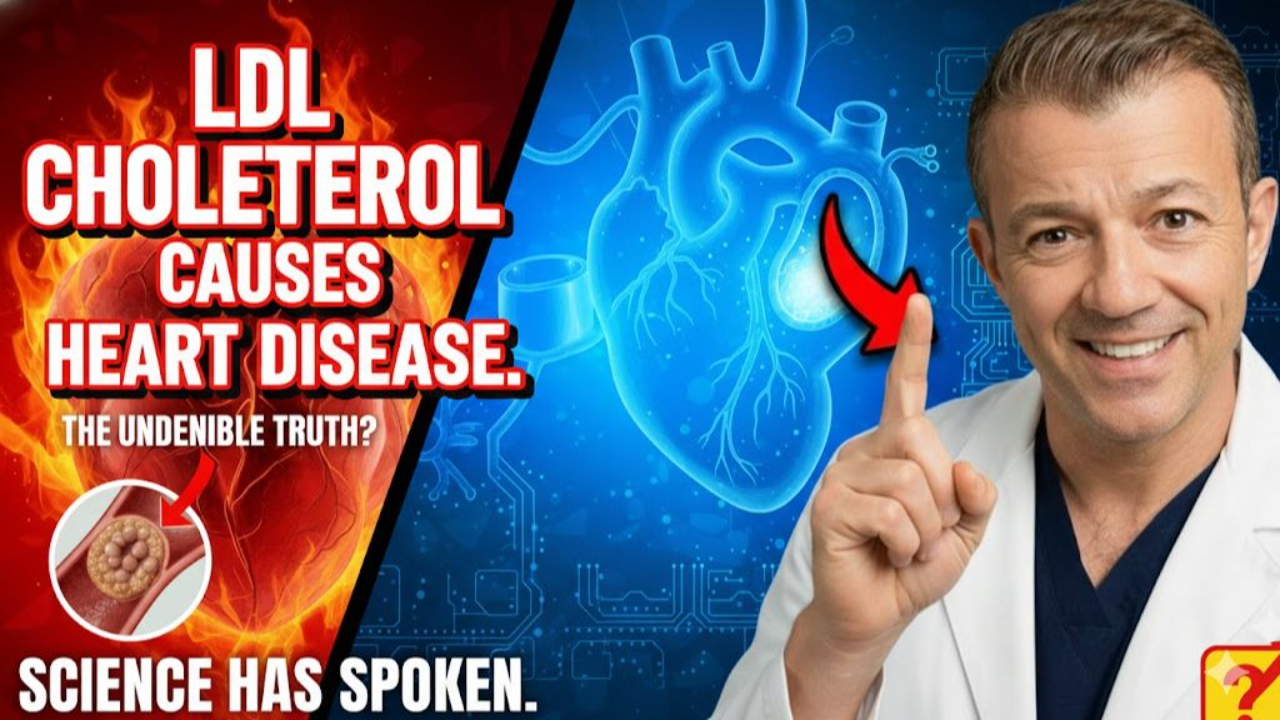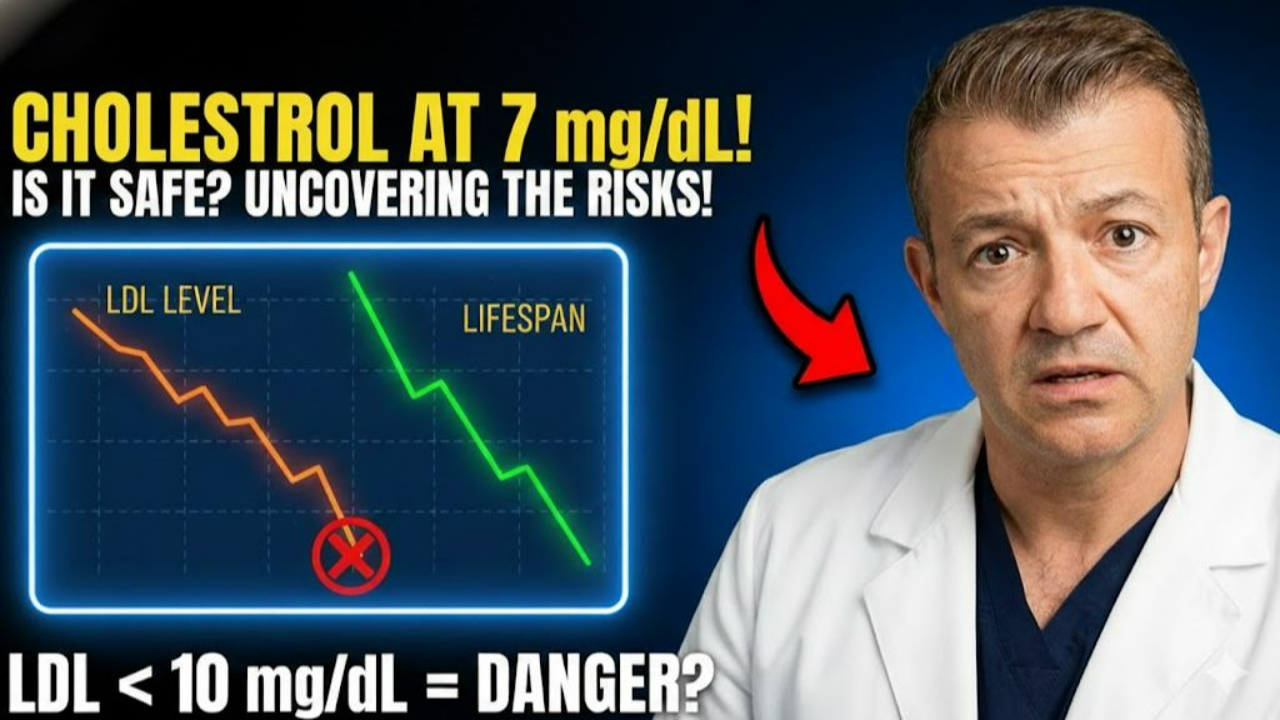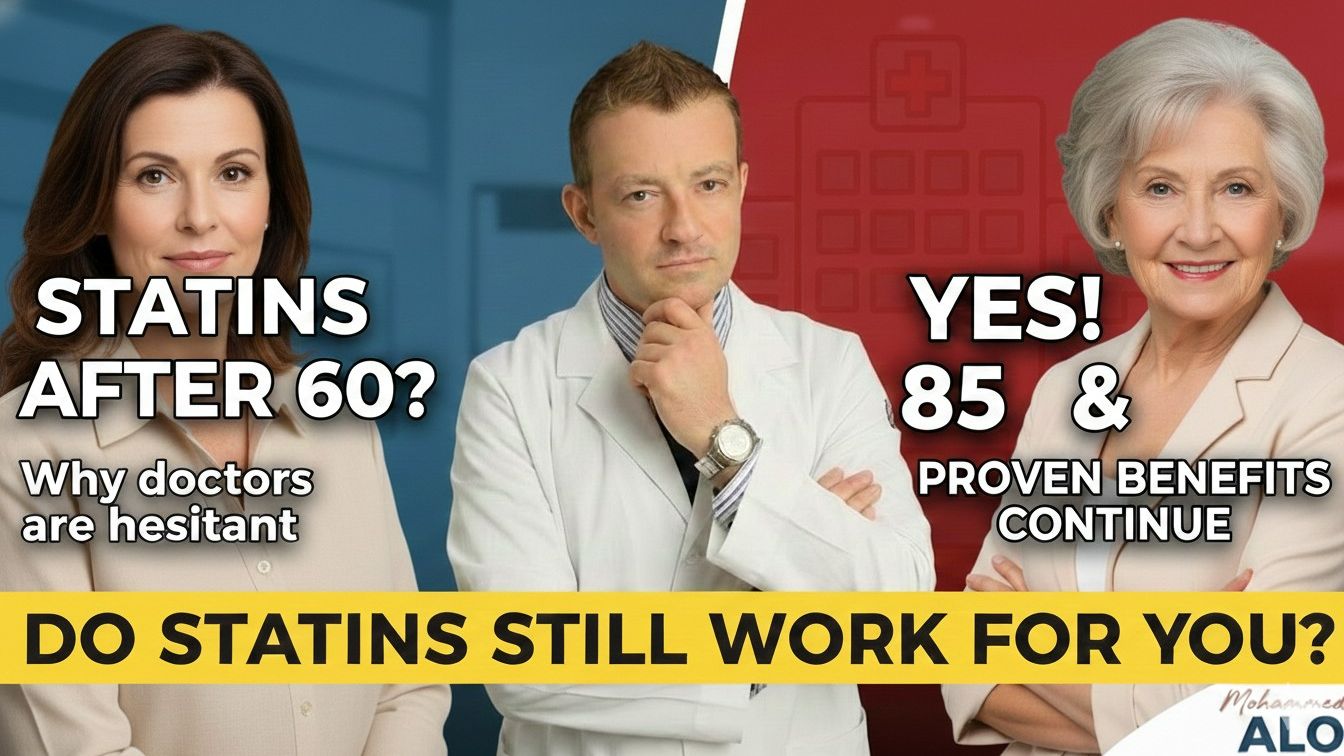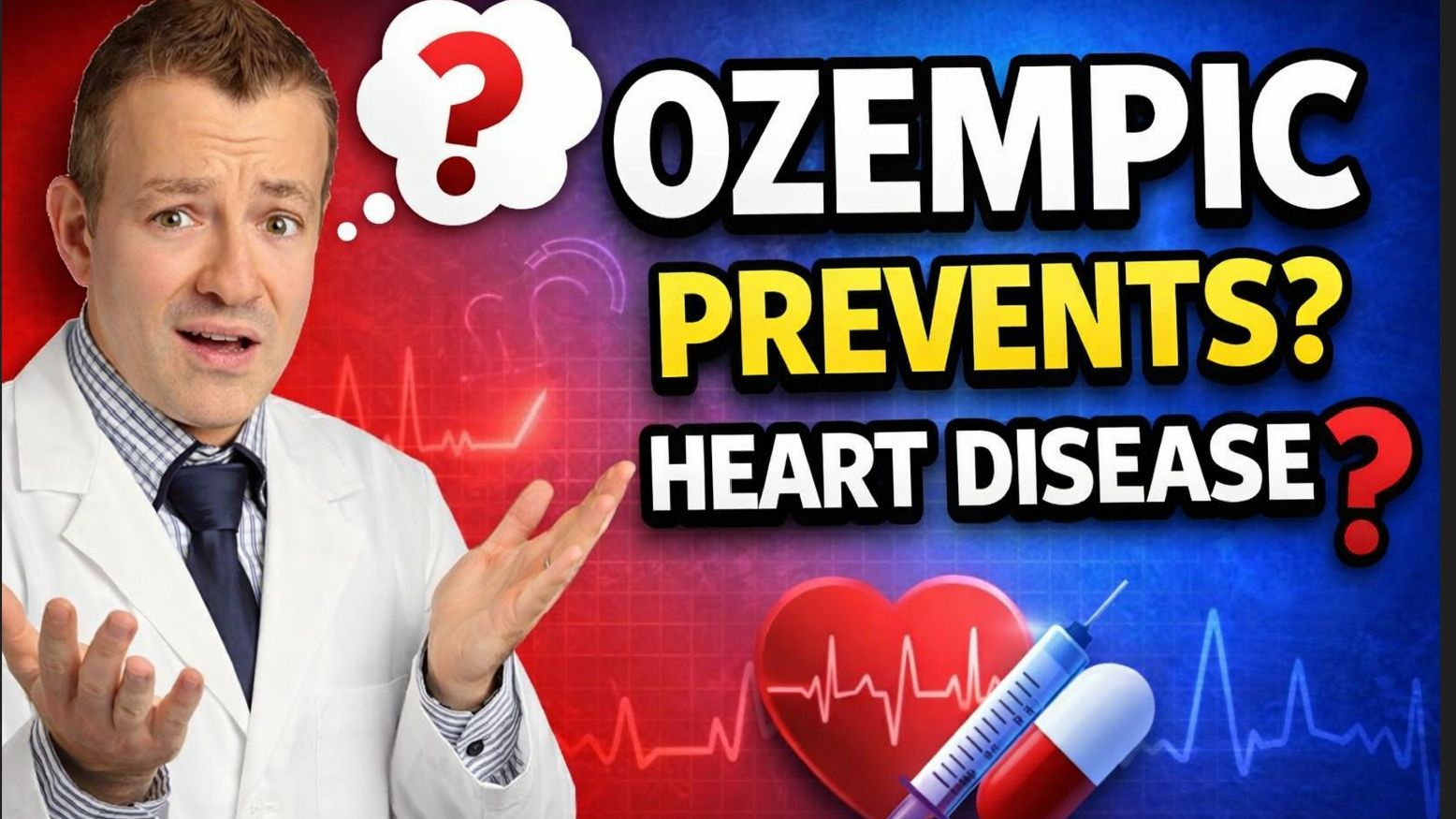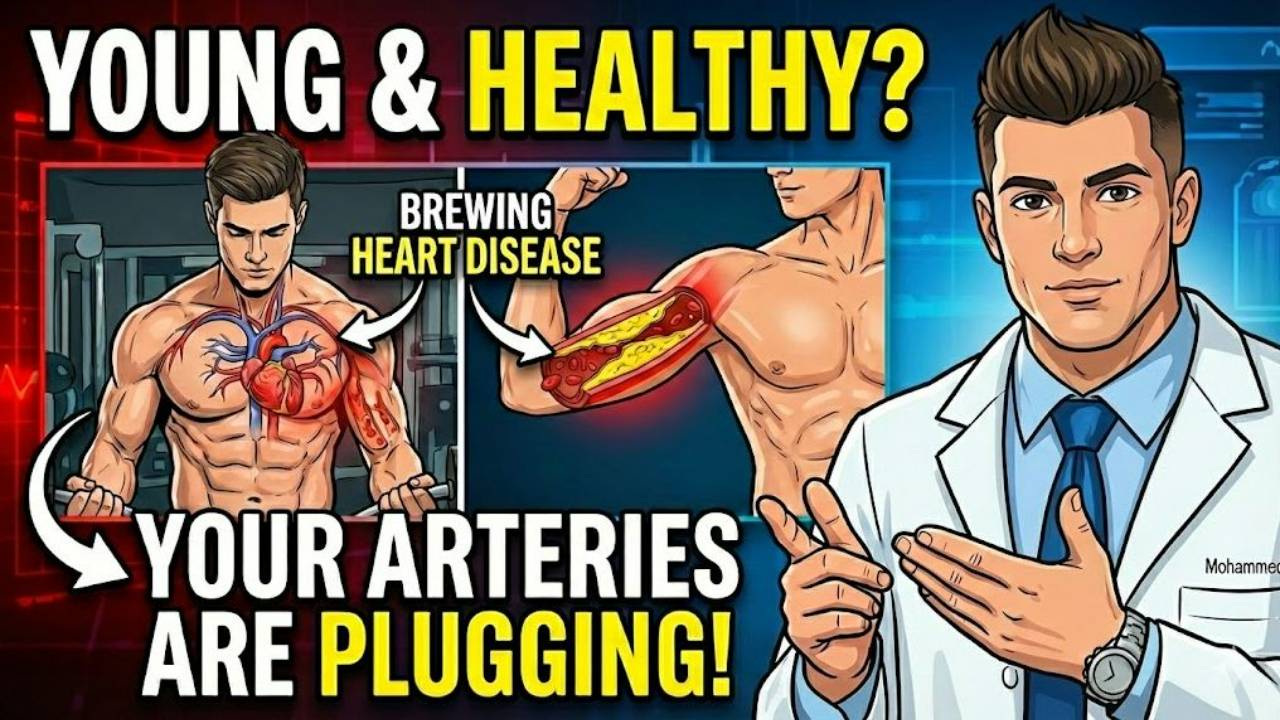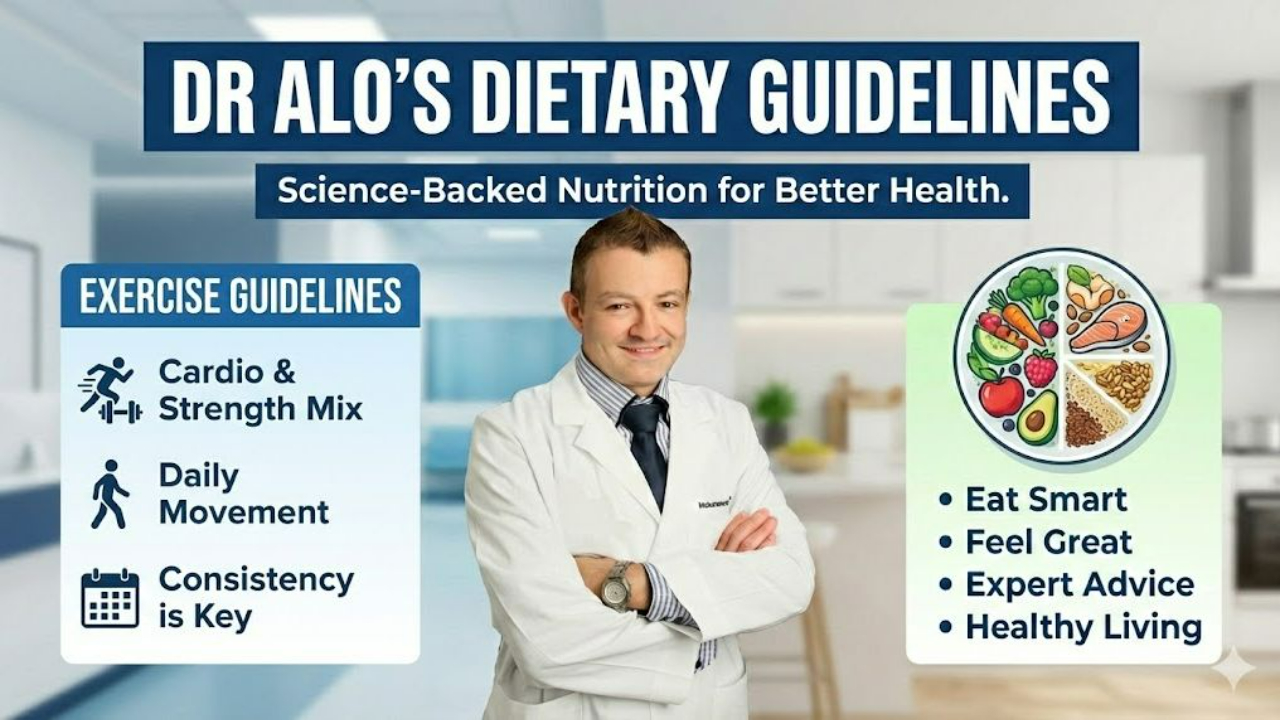Is The Carnivore Diet Safe? Or Does It Cause Cancer and Heart Disease!
Aug 22, 2023
Is The Carnivore Diet Safe or Good For Your Health? A Review of the Evidence and Studies
Just about every day I see a new doctor or influencer on social media touting these all red meat "ancestral diets" that are supposedly safer and healthier because cavemen and cavewomen used to eat this way. Another variation is a more ketogenic variant of this diet, where the majority of calories comes from fat.
There are actual doctors who are promoting this type of diet and obviously profiting significantly from it. They are taking advantage of every day folks that don't know any better. They look like an authority figure, so people trust them. They tell people that a cholesterol of 400 and an LDL of 300 is fantastic and normal, and that we need cholesterol to live and thrive. Yes, you need cholesterol, but you don't need excess cholesterol packed lipoproteins. None of that is true.
Let's take a deep dive and go through the data and find out if this is all true.
What does the data and research say about carnivore style diets?
Does the Carnivore Diet Cause Heart Disease or Heart Attacks?
Yes, it absolutely does, but there are ways to do this in a healthier way. There is a lot of nuance. Let's jump right in!
Meet the Carnivore Doctors - MDs
Physicians like Shawn Baker, Ken Berry, Philip Ovadia, Annette Bosworth, Eric Berg, and Paul Saladino tout the health benefits of the diet and argue that it is healthy and good for your heart and longevity. They argue that it is an "ancestral diet" and that it is how humans are supposed to eat. Are these claims true?
None of our ancestors lived past age 42 (see the mummies studies) and ever since we began lowering cholesterol and modern day medicine, we have added 30-50 years to the average lifespan.
One thing to note, none of these physicians are cardiologist nor lipidologists. Not one. Some are family doctors, surgeons, orthopods, ob/gyn, chiropractors, and a psychologist. Yes, this is who you are getting your advice from. A collection of non cardiologists that have no idea how to take care of cardiac patients long term. They opine on cholesterol as if it's their specialty telling people it's ok to have high cholesterol and high LDL. When it's the exact opposite.
I would never in my life go online and attempt to teach how to place an IUD or how to do ACL reconstructive surgery. Even though I am a physician and know a ton about this. It's not my area of expertise and I don't know the nuance or latest data. it's not my job to stay up to date on this research.
But I definitely know cardiology. I eat, live, breath, think, dream and practice cardiology every day. I live cardiology. It's my actual job. Every. Single. Day.
I teach cardiologists. It's my job to know the most up to date data.
I am a professor of medicine at multiple medical schools. I owe it to my students and future generations of physicians to teach cardiology correctly.
This is not a responsibility I take lightly. I take this very seriously.
Carnivore Diet May Be Killing You!
Financial Incentives Behind the Carnivore Diet
There are huge financial incentives to being a contrarian influencer. Whether you write a book calling cholesterol a "myth" or you teach people to eat a diet that has generally been considered unhealthy, you stand to gain a lot of clout and financial reward.
Imagine if I write a book saying smoking is good for your health. I cite the studies that may support this claim, and there are studies out there, and I gain popularity. I am invited to speak and I can make money off of this claim.
This applies to most people in the diet and health space. Medfluencers or Healthfluencers gain a large following and can capitalize on it in various ways.
I am sure they had good intentions and started out wanting to help people. I have spoken to a few of them and had a few online debates, and I feel they are trying to help. But sometimes you get tripped up over pebbles while ignoring huge boulders.
Because of the large financial rewards, most have zero incentive to actually follow evidence, change their narrative, and retract their statements.
Can you find research to support an all meat diet? Yes, of course. There are tons of studies that have demonstrated that Atkins style (high protein, low carb diets) will improve your cardiovascular markers. We have known this since Dr. Atkins popularized his Atkins diet in the 1980s and 1990s and cardiologist Dr. Agaston (Southbeach Diet) in the 2000s.
We now know that it wasn't the diet that improved cardiovascular markers, it was the weight loss alone. Regardless of which macronutrients you emphasize, it's the weight loss alone that improves your cardiovascular risk. (https://pubmed.ncbi.nlm.nih.gov/19246357/)
If you want a book that is truly evidence based, without the crazy fads and food restrictions, grab my Actual Weight Loss book for more leading edge weight loss and heart health advice! Lose all the weight you want while eating what you love.
Carnivore Diet Meal Plan Examples
So what do people on the carnivore diet eat? They generally eat meat, so a full day of eating may look like:
Carnivore Diet Scientific Research: Studies on Carnivore Diet
Let's take a look at the data and science!
The first article we will examine is from the New England Journal of Medicine from 2009. The study is titled, Comparison of weight-loss diets with different compositions of fat, protein, and carbohydrates. They compared diets with varying amounts of fats, carbohydrates, and protein. They found that regardless of which macronutrients were emphasized, the weight loss alone was responsible for all of the health benefits. So whether you ate mostly carbs, mostly fat, mostly protein, if you were in a calorie deficit and lost weight, your health markers all improved. Which is part of the reason why I am diet agnostic. You can follow almost any diet you want, lose weight, and still improve your health. The researchers concluded...
Conclusions: Reduced-calorie diets result in clinically meaningful weight loss regardless of which macronutrients they emphasize.
https://pubmed.ncbi.nlm.nih.gov/19246357/
In another article from 2009 titled, Weight-reducing diets: Are there any differences?
Here is the abstract:
This paper compares the efficacy of two widely used weight-loss diets differing in macronutrient composition - a low-carbohydrate diet versus a low-fat diet. Although "a calorie is a calorie" under the controlled conditions of a metabolic unit (i.e., only the level of calorie intake matters and not the source of calories), we conclude that these interrelationships are far more complex in the free-living situation. The different diet-related factors that condition energy balance, including total energy intake, satiety and hunger sensory triggers, and palatability, must be considered when assessing the efficacy of weight-reducing diets of different macronutrient composition.
They concluded that only the "level of calories" mattered and not the source of the calorie. So if you are eating 1800 calories a day of raw testicles or red meat or pop tarts, it really didn't matter. If you lost weight, your health improved. No one is claiming that this is a great long term strategy, like the Mediterranean diet.
https://pubmed.ncbi.nlm.nih.gov/19453689/
A more recent, late-breaking study was presented at the American College of Cardiology Conference in New Orleans in 2023. This study was of the UK Biobank database and showed an almost 2.2X increase in cardiovascular risk for people on a Ketogenic diet. They called it "keto-like" diet. These people ate less that 25% of total calories from carbs, and over 45% of calories from fat.
Conclusions from the publication:
Compared with participants on a standard diet, those on an LCHF diet had significantly higher levels of both LDL cholesterol and apolipoprotein B (apoB), the protein component that sits on LDL and other atherogenic lipoprotein particles. Previous studies have shown that elevated apoB may be a better predictor than elevated LDL cholesterol for risk of cardiovascular disease, Iatan said. After an average of 11.8 years of follow-up—and after adjustment for other risk factors for heart disease, such as diabetes, high blood pressure, obesity and smoking—people on an LCHF diet had more than two-times higher risk of having several major cardiovascular events, such as blockages in the arteries that needed to be opened with stenting procedures, heart attack, stroke and peripheral arterial disease. In all, 9.8% of participants on an LCHF diet experienced a new cardiac event, compared with 4.3% of those on a standard diet, a doubling of risk for those on an LCHF diet.
The hazard ration was 2.18, meaning you were 2.18 times more likely to have a cardiac event on keto than not. They were followed for nearly 12 years.
Carnivores: Dr. Paul Saladino, Dr. Keny Berry, Dr. Philip Ovadia, Dr. Treacy, and Dr. Shawn Baker
More recently, carnivore doctors like Paul Saladino have been entangled in a web of controversy due to ties to Liver King. Liver King has been his business partner for 5 years and they lived together for about a year coming up with their shared business plan. Paul Saladino denies that he knew that Liver King was on $12,000/month of anabolic steroids in the recent email leaks. This is all according to news sources and media reports.

Saladino pictured with his supplements

Shawn Baker
Drs. Ovadia, Treacy, Berry, Baker, Bosworth, Berg, and Saladino are not cardiologist and haven't the slightest idea how to improve cardiovascular health. One is a cardiothoracic surgeon, one is a gynecologist, one is an internist, one is a non-practicing psychologist, one is an orthopedic surgeon, one is a chiropracter, and the other is a family doctor. Most have written books on "the carnivore diet" or various other anti-establishment type books.
Dr. Philip Ovadia is a cardiothoracic surgeon and has also never taken care of a long term cardiac patient after surgery. He rearranges their arteries or replaces a valve and says good bye. He has no idea how to use medications or how medications affect patients. He has no idea how lifestyle changes like diet, exercise, weight lifting affect patient outcomes. He has no idea how lifestyle modifications affect hypertension, diabetes, or cholesterol. Literally, zero training in this and zero experience in this.
In multiple interviews, Dr. Ovadia demonstrated that he doesn't even know the basic terminology of lipid metabolism. He suffers from the Dunning Kruger effect. He learned a little bit about something and now thinks he is an expert. He doesn't even know the difference between Apolipoprotein B and LDL cholesterol. Probing him on more than very superficial knowledge is useless. He just retreats to the tired and meaningless "metabolically healthy" defense. He can't even define the term. His book is full of misinterpreted data and studies that were tossed into the recycle bin of history for being so poorly done.
The same goes for the vast majority of these doctors. They don't even speak the same language as cardiologists or lipidologists when it comes to lipid management and lipid metabolism. The questions and posts they make online demonstrate a severe ineptitude when it comes to heart disease and lipid management. They should probably stick to their own specialties.
A cardiologist, like myself, actually looks inside your heart and inside your arteries. We manage people risks long term and know how to take care of patient for decades, not just 5o minutes on an operating table.
Independent review organizations have all reviewed their books for scientific accuracy, and have found less than 22-37% accuracy rates depending on which book. Dr. Jason Fung's book, for example, was less than 30% accurate.
Liver King and his business partners sell around $100 million annually of supplements. They have to continue on the same "organ meat" and "ancestral diet" narrative to keep making money. Liver King has admitted this publicly. There is nothing wrong with selling supplements, but don't tell people they are magical and the only way to live.
Interestingly enough, none of them came up with this diet. It was actually first published online by a young kid, at the time, named Frank Tufano. It's interesting that multiple highly educated physicians would follow a diet invented by a 20 year old kid who was merely experimenting with his body and posting random videos on YouTube about his wayward journey. Tufano was doing the carnivore diet for 8 years before Baker, Berry, and Saladino discovered it and ran with it. Tufano has since abandoned his diet due to multiple health issues and nutritional deficiencies.
Paul Saladino Stops And Quits The Carnivore Diet
Recently, Paul Saladin, the original "Carnivore MD", has abandoned the carnivore diet. He was being interviewed by More Plates on YouTube and Paul stated that he does not believe in the keto or carnivore diet and he does not think that anyone should be on it long term. He noticed bad health outcomes within the first year and had to abandon his diet. Others have also followed suit.
Fake Carnivores, Clownivores, and Scamivores
Most of these doctors have admitted that they take multiple days off their diet and eat whatever they want. Baker states that he takes 2 days off every week in many interviews. Saladino keeps adding more and more foods to his "diet" because it is extreme and unsustainable. He has added fruit, maples syrup, honey, milk, cheese, and all kinds of other foods (carbs). Liver King has admitted to using $12k of performance enhancing drugs (PEDs) every month. His diet includes a lot of maple syrup and, surprisingly, he consumes very minimal liver meat based on his own emails. Some of the maple syrup they take is because they take PEDs (anabolic steroids) and insulin and need fast absorbing sugars to not die. Liver King has admitted as such in his leaked emails.
Ancestral Diets?
Dr. Herman Pontzer is an anthropologist at Duke University. He has studied our ancestors extensively. He has also studied modern day hunter gatherer tribes in West Tanzania, called the Hadza Tribe. He is an expert in this field. He has been studying and publishing on this topic for over 20 years. In his book, Burn, he discusses ancestral diets. Humans were not carnivores. They were opportunistic omnivores, which means they would eat whatever they could find at the time. I highly encourage you to follow his work and read his book.
Ancestors, Mummies and Heart Disease
Yes, older nations suffered from heart disease. They died young. Autopsies on mummies in ancient Egypt demonstrate that most mummies died from atherosclerotic heart disease and only lived to about age 45.
https://www.sciencedirect.com/science/article/abs/pii/S0002870319301711
https://www.sciencedirect.com/science/article/abs/pii/S014067361360598X
From the Studies:
Atherosclerosis was common in four preindustrial populations including preagricultural hunter-gatherers. Although commonly assumed to be a modern disease, the presence of atherosclerosis in premodern human beings raises the possibility of a more basic predisposition to the disease.
We found evidence of atherosclerosis in different vascular beds of mummy samples across various time periods and among different cultures, supporting previous findings.
Carnivore Diet, Cholesterol, and Heart Disease: The Science, Research, and Studies
What does the science say about the carnivore diet? Does the carnivore diet cause heart disease? Is the carnivore diet safe? Or good for your heart?
This is a very restrictive elimination diet which consists of eating mainly animal products such as meat, eggs, and dairy, with no plant-based foods. The carnivore diet has gained popularity recently as a weight loss and health promotion strategy. But the research suggests that the carnivore diet may be harmful to cardiovascular health. Let's review the evidence on the carnivore all meat diet and explore why the carnivore diet may be bad for your cardiovascular health.
-
The carnivore diet has been shown to increase the risk of heart disease. A multitude of studies have found an association between high meat consumption and an increased risk of heart disease. One large meta-analysis published in the journal Circulation found that higher red meat consumption was associated with a higher risk of cardiovascular disease. The meta-analysis included data from 36 studies and found that each additional serving of red meat per day was associated with a 12% increased risk of cardiovascular disease. The carnivore diet is high in red meat, and therefore increases the risk of heart disease. Further, the study found that a red meat diet did not lower total cholesterol or triglycerides as much as plant based diets or diets that included more fish. (https://www.ahajournals.org/doi/10.1161/CIRCULATIONAHA.118.035225)
-
The carnivore diet increases the risk of stroke. Several studies have also found an association between high red meat consumption and an increased risk of stroke, whether it was processed or unprocessed. A meta-analysis published in the journal Stroke found that higher red meat consumption was associated with a higher risk of stroke. The meta-analysis included data from 7 studies and over 2 million participants found that each additional serving of red meat per day was associated with a 10% increased risk of stroke. The carnivore diet is high in red meat, and therefore may increase the risk of stroke. (https://pubmed.ncbi.nlm.nih.gov/26935118/)
-
The carnivore diet can also cause high blood pressure. Research has shown that high meat consumption may be linked to high blood pressure, which causes heart disease and stroke. A systematic review and meta-analysis published in the American Journal of Hypertension found that higher red meat consumption was associated with a higher risk of high blood pressure. The review included data from 14 studies and found that each additional serving of red meat per day was associated with a 3.5 mm Hg increase in systolic blood pressure. The carnivore diet is high in red meat, and therefore increases the risk of high blood pressure, heart disease, and stroke. (https://pubmed.ncbi.nlm.nih.gov/26935118/, https://www.ncbi.nlm.nih.gov/pmc/articles/PMC2658466/, https://academic.oup.com/ajh/article-abstract/35/8/679/6585635)
-
The carnivore diet is usually very high in saturated fats. Saturated fat is incredibly inflammatory and will wreak havoc on your cardiovascular system. Animal products and especially red meat, are high in saturated fats, which increases LDL (bad) cholesterol levels and cause atherosclerotic cardiovascular disease. Yes, LDL causes ASCVD (https://pubmed.ncbi.nlm.nih.gov/28444290/). Saturated fat increases cholesterol synthesis in the liver and downregulates LDL receptors so that less receptors are available to clear LDL from circulation.
-
Most animal products, especially processed meats, are high in sodium and preservatives, which have been linked to an increased risk of heart disease, cancer, and other chronic diseases. The carnivore diet is high in unhealthy fats, sodium, and other additives that may be harmful to cardiovascular health. (https://pubmed.ncbi.nlm.nih.gov/27597529/, https://pubmed.ncbi.nlm.nih.gov/31044613/)
- The carnivore diet lacks essential nutrients. This is why Carnivore MD and others like Frank Tufano (the OG carnivore) recently retracted his "animal only" diet and said fruit is ok; too many vitamin deficiencies. On the other hand, plant-based diets that are rich in fruits, vegetables, whole grains, nuts, beans, and legumes, are rich sources of essential nutrients, including fiber, antioxidants, and a variety of vitamins and minerals. By eliminating these foods from the diet, the carnivore diet will lead to deficiencies in these important nutrients. In addition, plant-based diets have been shown to have a number of health benefits, including reduced risk of heart disease, stroke, cancer, and other chronic diseases.
- Research shows that a keto or carnivore diet actually increases inflammation. Scientists found that switching from a baseline diet that was more balanced to a keto style diet which was mostly meat and fat increased cholesterol and inflammatory markers, decreased triglycerides, and decreased insulin-mediated antilipolysis. Glucose homeostasis parameters were diet dependent and test meal dependent. All of these finding are worse. (https://pubmed.ncbi.nlm.nih.gov/31067015/)
But wait, it gets even worse...
A mostly meat diet will increase your risk of cancer. What about Cancer risk?
Carnivore Diet and Cancer Risk: The Science, Research, and Studies
Does the carnivore diet increase your risk of cancer? Does the carnivore diet cause cancer?
The totality of research has suggested that an all meat diet will increase the risk of multiple types of cancer. Let's take a look.
-
An all meat diet increases the risk of colon cancer. Numerous studies have found a verifiable and consistent association between high meat consumption and colon cancer. A systematic review and meta-analysis published in the journal Cancer Causes and Control found that higher red meat consumption was associated with an increased risk of colon cancer. The review included data from 12 studies and found that each additional serving of red meat per day was associated with a 17% increased risk of colon cancer. The carnivore diet is high in red meat, and therefore may increase the risk of colon cancer. (https://www.ncbi.nlm.nih.gov/pmc/articles/PMC4698595/)
-
An all meat diet increases the risk of breast cancer. Research has shown that high meat consumption (as well as obesity and alcohol intake) are linked to breast cancer. A meta-analysis published in the journal Breast Cancer Research found that higher red meat consumption was associated with an increased risk of breast cancer. The meta-analysis included data from 10 studies and found that each additional serving of red meat per day was associated with a 10% increased risk of breast cancer. The carnivore diet is high in red meat, and therefore increases the risk of breast cancer. (https://pubmed.ncbi.nlm.nih.gov/31389007/)
-
The carnivore diet is usually high in unhealthy saturated fat. Red meat (lamb, pork, beef, bison, venison, goat) are high in saturated fats, which have been linked to an increased risk of all forms of cancer. Bison, venison and usually leaner and have less fat. The worst offenders are processed meats. They are high in sodium and preservatives (sodium nitrate), which have also been shown to increase cancer risk.
-
A diet that does not include fruits, vegetables, legumes, nuts, beans, and other non-meat sources of nutrients will lack antioxidants and other nutrients that have been shown to fight cancer cells. (https://pubmed.ncbi.nlm.nih.gov/26501271/, https://pubmed.ncbi.nlm.nih.gov/24629981/, https://pubmed.ncbi.nlm.nih.gov/24122646/)
Carnivore Diet More Harm than Good
The evidence against the carnivore diet and other "ancestral" style, mostly meat diets is quite overwhelming. An all meat diet increases the risk of heart disease and multiple types of cancer. Consuming a diet that is high in animal products will increase the risk of heart disease and colon, gastric, and breast cancer. I don't recommend to my patients to follow this style of diet. Especially if you are a cardiac patient and have already had a heart attack, peripheral artery disease, or a stroke.
Wait, there's more:
In another study from 2004 titled, A randomized trial comparing low-fat and low-carbohydrate diets matched for energy and protein, they concluded...
Our results showed no significant weight loss, lipid, serum insulin, or glucose differences between the two diets. Lipids were dramatically reduced on both diets, with a trend for greater triglyceride reduction on the VLC (very low carb) diet. Glucose levels were also reduced on both diets, with a trend for insulin reduction on the VLC diet. Compliance was excellent with both diets, and side effects were mild, although participants reported more food cravings and bad breath on the VLC diet and more burping and flatulence on the LF (low fat) diet.
The low carb group had more carvings and more disordered eating, but the very low carb and the low fat groups both lost the same amount of weight when calories were the same.
https://pubmed.ncbi.nlm.nih.gov/15601961/
So What is the Healthiest Diet?
As a cardiologist who has been researching and lecturing at medical conferences for over 20 years, I eat, live, sleep, and breath cardiology. The healthiest diet you can adhere to is still the Mediterranean Diet. And that's it. Read my article on all of the health benefits of the Mediterranean diet!
You can either listen to a gynecologist, orthopedic surgeon, chiropractor, or a non practicing psychologist.... None of which have any training in heart disease prevention and nutrition.
Or you can follow the advice of a board certified cardiologist, who is also a certified personal trainer, who has been teaching weight loss, nutrition, cardiology, and heart healthy living for over 20 years.
Grab my Actual Weight Loss book for more leading edge weight loss and heart health advice!
Grab my Mediterranean Diet Calorie Based Weight Loss Cookbook!
Join my Heart Healthy Community to discuss personalized health advice.
Still Have Questions? Stop Googling and Ask Dr. Alo.
You’ve read the science, but applying it to your own life can be confusing. I created the Dr. Alo VIP Private Community to be a sanctuary away from social media noise.
Inside, you get:
-
Direct Access: I answer member questions personally 24/7/365.
-
Weekly Live Streams: Deep dives into your specific health challenges.
-
Vetted Science: No fads, just evidence-based cardiology and weight loss.
Don't leave your heart health to chance. Get the guidance you deserve. All this for less than 0.01% the cost of health insurance! You can cancel at anytime!
[👉 Join the Dr. Alo VIP Community Today]



